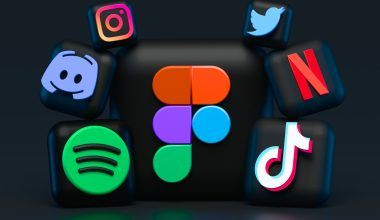Creating music is an incredible journey that blends creativity, emotion, and technical skills. But to truly bring your ideas to life, mastering music tools is essential. Whether you’re a beginner experimenting with beats or a seasoned producer refining your craft, the tools you use can make or break your musical vision. And let’s be honest, these tools can sometimes feel overwhelming. But don’t worry—with the right approach, mastering music tools can be straightforward, fun, and incredibly rewarding.
So, what does mastering music tools really mean? It’s about knowing how to use digital audio workstations (DAWs), plugins, and even physical equipment like synthesizers or MIDI controllers to express your musical ideas. It’s not just about getting things done but about doing them better, faster, and more creatively. Let’s dive into how you can make this happen.
Why Mastering Music Tools Matters
Imagine trying to compose a song but not knowing how to layer tracks or tweak the EQ. Frustrating, right? Mastering music tools lets you focus on the creative process instead of struggling with technical hiccups. When you know your tools inside out, you can turn ideas into reality faster and with less stress.
Plus, in today’s competitive music industry, technical skills can set you apart. Whether you’re mixing tracks for clients or producing your own songs, knowing your tools gives you the edge. It helps you deliver polished, professional-sounding results that listeners will love.
Choosing the Right Music Tools
There’s a wide variety of music tools available, so it’s important to choose the ones that fit your style and goals. For instance, if you’re into electronic music, tools like Ableton Live and FL Studio might be perfect for you. If you prefer recording live instruments, Pro Tools or Logic Pro X might be more suitable.
Start by identifying what you need most. Are you looking to create beats, record vocals, or produce full tracks? Once you know your goals, research the tools that can help you achieve them. You don’t need every fancy gadget or plugin—focus on mastering a few essential tools first.
Learning the Basics of Your Tools
Every tool has a learning curve, but don’t let that discourage you. Start with the basics. If you’re using a DAW, learn how to create a new project, add tracks, and use simple effects like reverb or compression. If you’re working with a MIDI controller, get comfortable mapping it to your software.
Practice makes perfect, and the more you use your tools, the more natural they’ll feel. Set aside time each day to experiment and explore. For example, try creating a short loop using only one instrument and one effect. This focused practice will help you build confidence and discover new possibilities.
Taking Advantage of Tutorials and Resources
One of the best things about mastering music tools is the wealth of resources available online. From YouTube tutorials to forums and blogs, there’s no shortage of information to guide you. Look for tutorials that match your skill level and goals. If you’re just starting out, search for beginner guides. If you’re more advanced, dive into tutorials on sound design, mixing, or mastering.
Don’t forget about official user manuals and help sections. While they might not be as exciting as a video tutorial, they often contain valuable information that can save you time and frustration.
Overcoming Frustration
It’s easy to feel overwhelmed when learning a new music tool. Maybe you can’t figure out how to automate a parameter, or your mix doesn’t sound the way you envisioned. These moments of frustration are completely normal—and temporary.
When you hit a roadblock, take a break or shift your focus to something else. Often, stepping away and coming back with fresh eyes can make all the difference. Remember, every expert producer was once a beginner. Be patient with yourself and celebrate small wins along the way.
Unlocking Advanced Features
Once you’re comfortable with the basics, it’s time to dig deeper. Explore advanced features like sidechain compression, layering sounds, or using automation to create dynamic tracks. These techniques can take your music to the next level, making it sound more polished and professional.
For example, mastering automation in your DAW can add movement and emotion to your tracks. You can gradually increase the intensity of a sound or make subtle changes that keep your listeners engaged. Don’t be afraid to experiment—you might discover a signature sound or style in the process.
Mastering Collaboration Tools
Music is often a collaborative effort, and mastering tools for collaboration can open up new opportunities. Many DAWs and platforms now offer features for remote collaboration, allowing you to work with artists and producers worldwide. Learning how to share project files, sync tracks, and communicate effectively within these tools can make your collaborations smoother and more productive.
Staying Updated
The world of music tools is always evolving. New plugins, updates, and features are released regularly. To stay ahead, keep learning and experimenting. Subscribe to newsletters, follow music production blogs, and join communities where you can exchange tips and ideas.
Staying updated doesn’t mean you have to master every new tool immediately. Focus on the updates that align with your needs and projects. If a new plugin can simplify your workflow or add a unique touch to your sound, it’s worth exploring.
Balancing Creativity and Technical Skills
While mastering music tools is essential, don’t forget the bigger picture. Tools are there to serve your creativity, not stifle it. Avoid getting so caught up in technical details that you lose sight of your musical vision.
Sometimes, simplicity is key. A great track doesn’t need dozens of plugins or layers—it needs heart and intention. Use your tools to enhance your ideas, not overshadow them.
Final Thoughts
Mastering music tools is a journey, not a destination. It’s about continuous growth, exploration, and creativity. Whether you’re just starting or looking to refine your skills, take it one step at a time. Be curious, stay persistent, and most importantly, enjoy the process.
So, what’s the first music tool you’re going to master? Start today, and watch how your creativity and
For further reading, explore these related articles:
- Shakira’s Popular Songs: A Journey Through Music and Magic
- The Ultimate Guide to Hollywood Birthday Songs: Celebrate in Style with Fun Tunes!
For additional resources on music marketing and distribution, visit DMT Records Pvt. Ltd.






